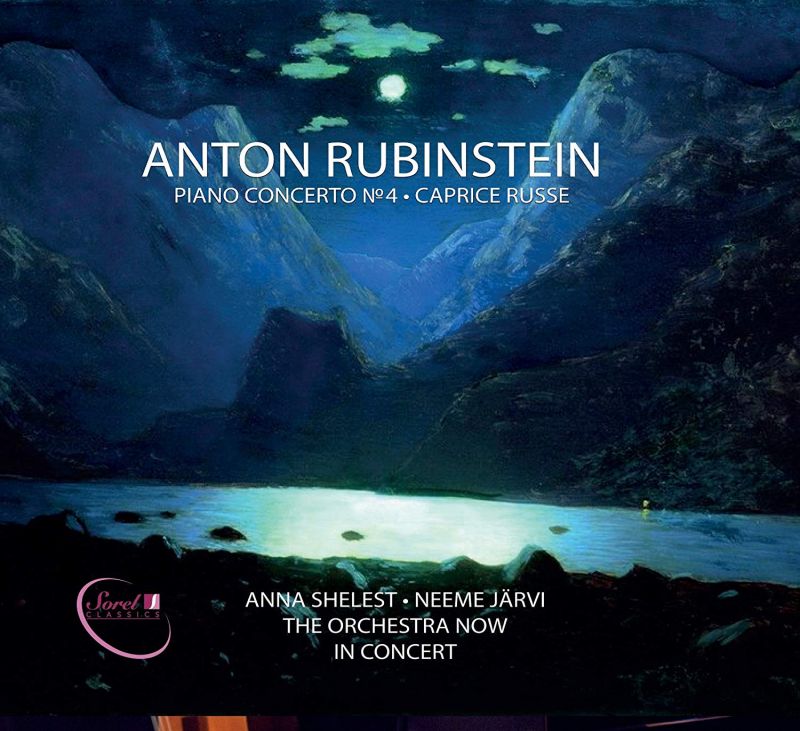RUBINSTEIN Piano Concerto No 4. Caprice Russe (Shelest)
View record and artist detailsRecord and Artist Details
Composer or Director: Anton (Grigor'yevich) Rubinstein
Genre:
Orchestral
Label: Sorel
Magazine Review Date: 10/2018
Media Format: CD or Download
Media Runtime: 51
Mastering:
DDD
Catalogue Number: SCCD013

Tracks:
| Composition | Artist Credit |
|---|---|
| Concerto for Piano and Orchestra No. 4 |
Anton (Grigor'yevich) Rubinstein, Composer
Anna Shelest Anton (Grigor'yevich) Rubinstein, Composer Neeme Järvi, Conductor Orchestra Now |
| Caprice russe |
Anton (Grigor'yevich) Rubinstein, Composer
Anton (Grigor'yevich) Rubinstein, Composer Neeme Järvi, Conductor Orchestra Now |
Author: Jed Distler
If anything, the tumultuous finale showcases Shelest’s power and agility operating at more inspired capacity, tossing out runs, leaps and octave surges to effortless effect. Järvi and his musicians clearly enjoy the music’s rapid-fire interplay between soloist and ensemble. Yet despite strong orchestral support and lovingly phrased woodwind-playing, the central Andante falls slightly flat. Here is where the ability to shape long cantabile lines and achieve a genuine singing legato is crucial, and Shelest frankly does not sustain the lyrical sections with the transparency, textural variety and colour that one hears from the veteran Shura Cherkassky.
A colleague characterised the Caprice russe as ‘Rubinstein wanting to be Saint-Saëns’. And why not? After all, the composers were friends and colleagues, and what’s wrong with interweaving three memorable themes into a fantasy full of pianistic glitter, even if much of it rambles with padding? Much as I appreciate the full-bodied eloquence of Joseph Banowetz’s Marco Polo recording, Shelest proves more nuanced and incisive all round. Listen to the bravura sweep of her long cadenza leading into her heel-kicking treatment of the Scherzando, and the orchestra’s corresponding élan; a zestier option compared to the heavier-gaited Centaur version with pianist Grigorios Zamparas. If you want a darker, more serious Caprice russe, stick with Banowetz, but the more extroverted Shelest/Järvi seems more in keeping with the work’s blatant flashiness. However, Hamelin’s Rubinstein Fourth remains the current sonic and interpretative point of reference, seconded by the steely brilliance of the Raekallio/Grin release from Ondine.
Discover the world's largest classical music catalogue with Presto Music.

Gramophone Digital Club
- Digital Edition
- Digital Archive
- Reviews Database
- Full website access
From £8.75 / month
Subscribe
Gramophone Full Club
- Print Edition
- Digital Edition
- Digital Archive
- Reviews Database
- Full website access
From £11.00 / month
Subscribe
If you are a library, university or other organisation that would be interested in an institutional subscription to Gramophone please click here for further information.




